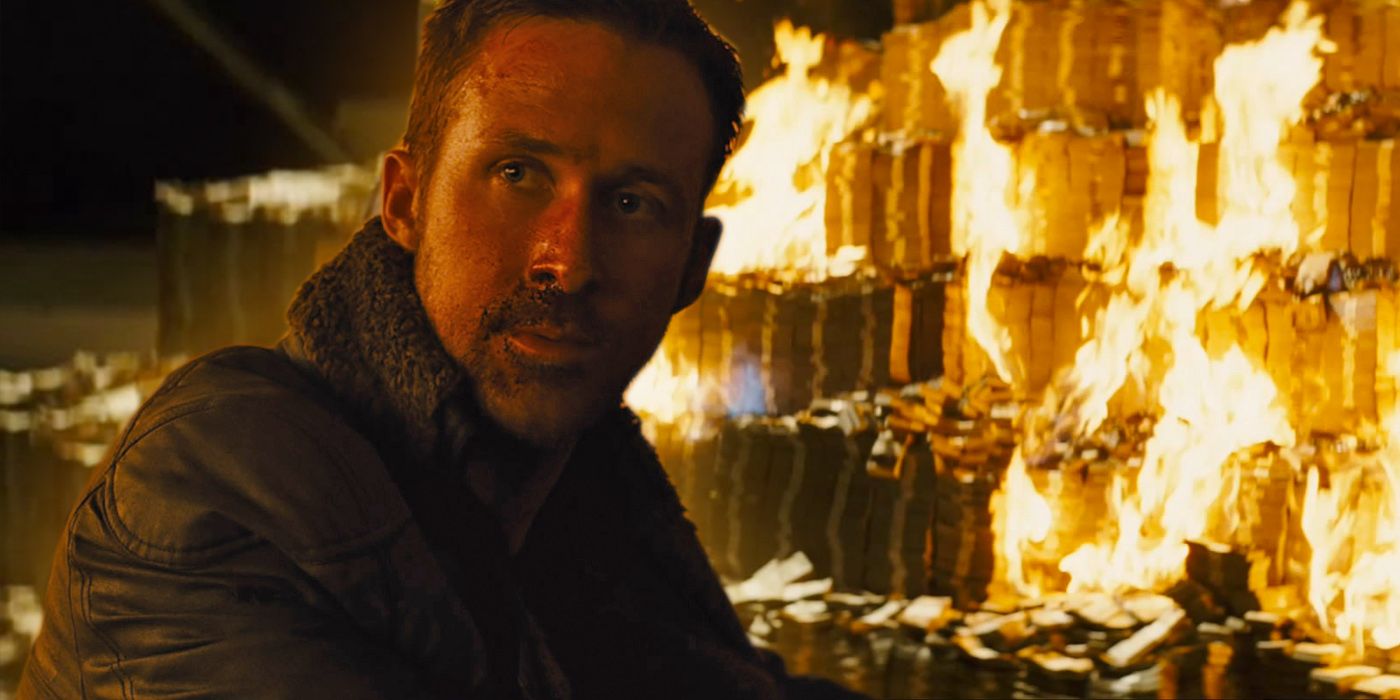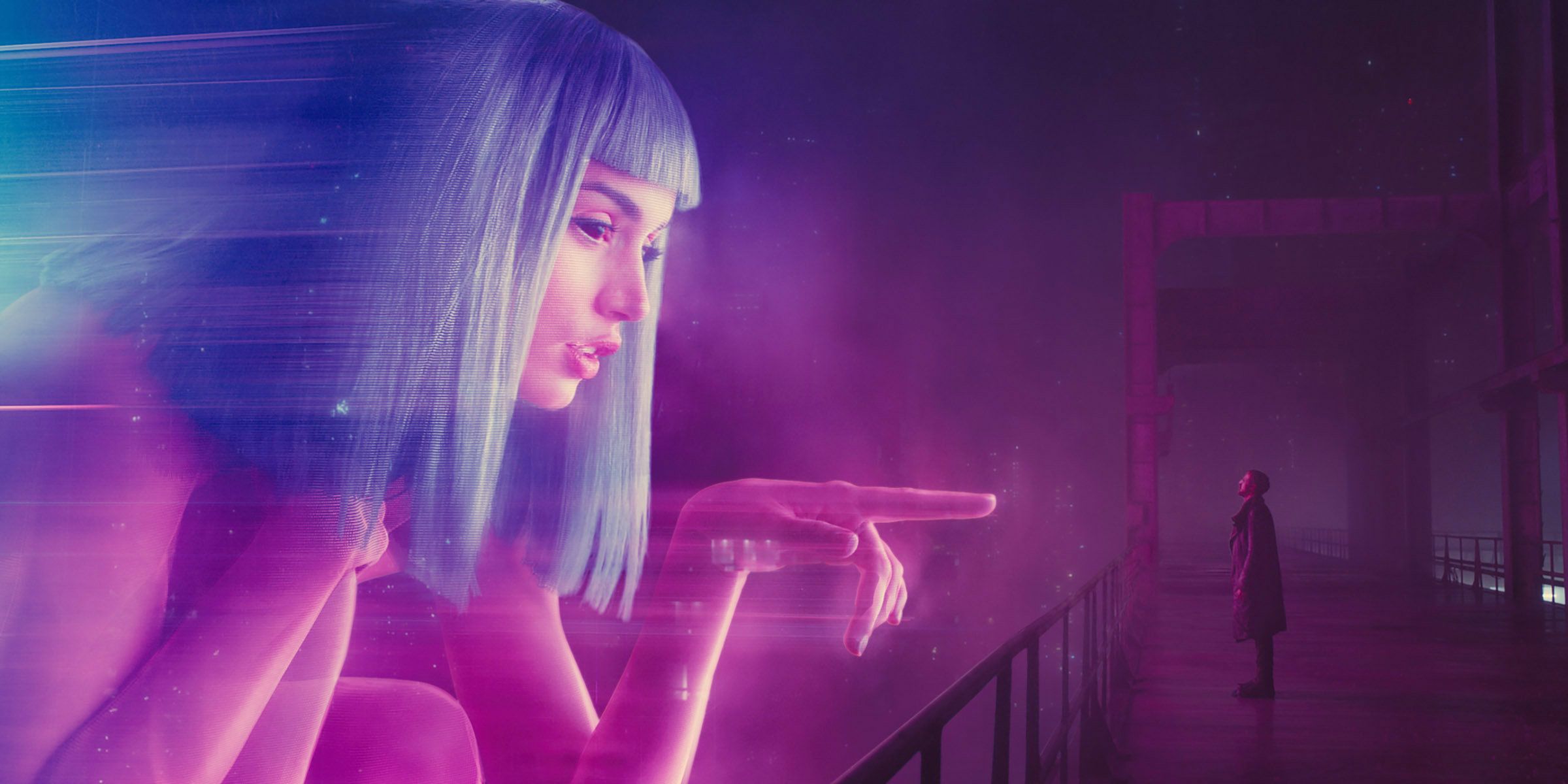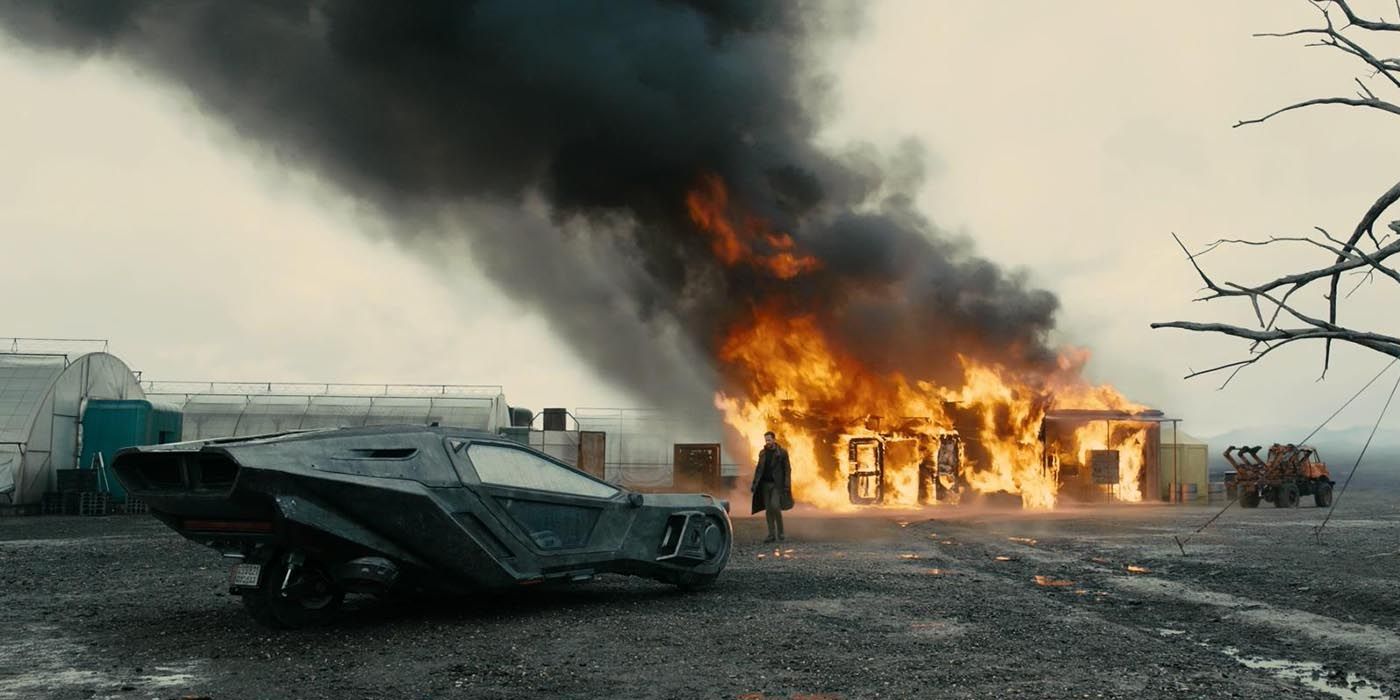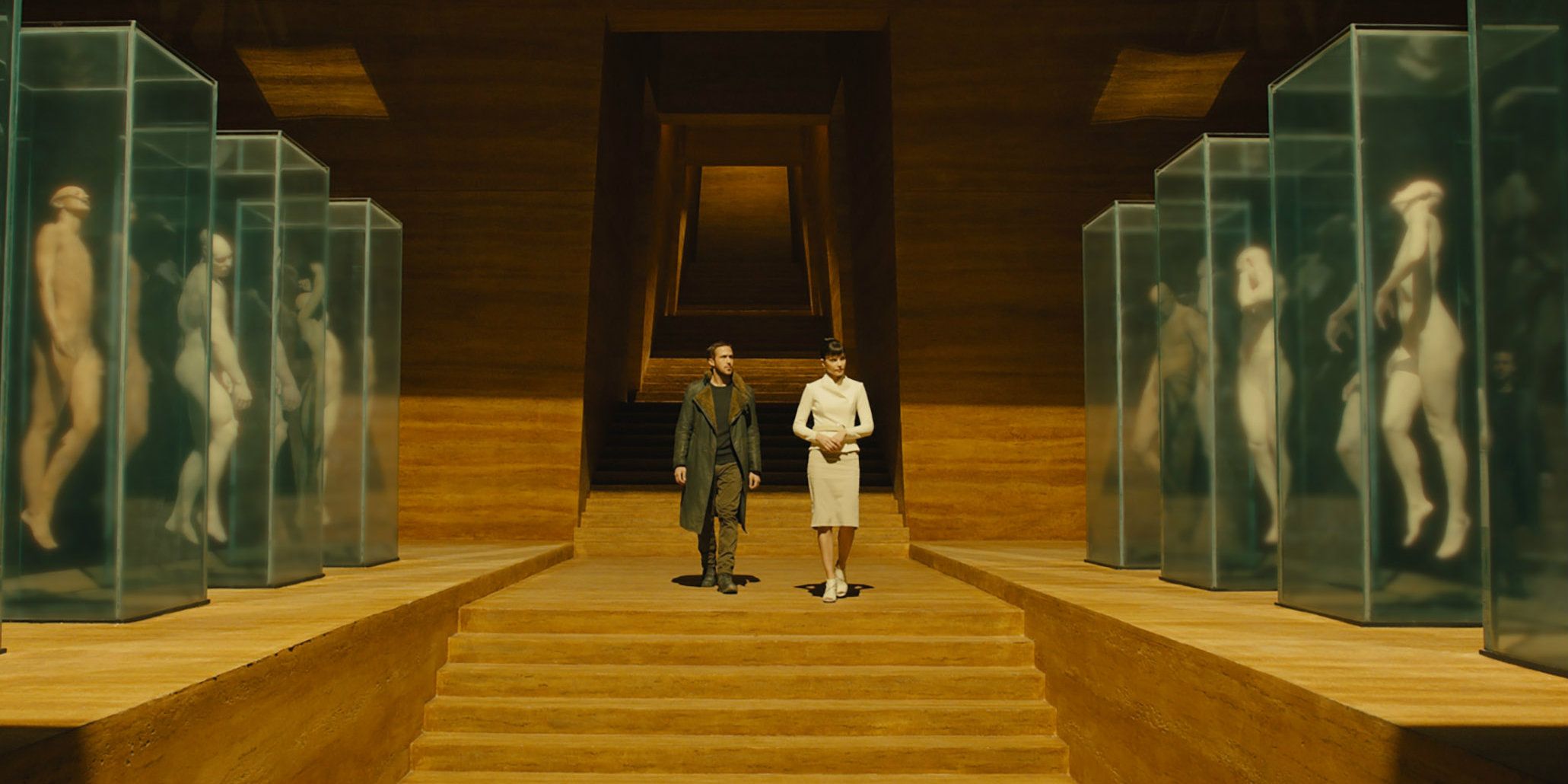Blade Runner 2049 may be a hit with critics but it's not so lucky at the box office. Despite glowing reviews, strong word of mouth and an A- Cinemascore, Denis Villeneuve's sequel is faring comparably to Ridley Scott's 1982 original, now a cult classic but at the time a notorious flop. But this was only ever to be expected - and isn't as disastrous as it sounds.
Estimations have the film ending its opening weekend (including Thursday previews) on $31.5M domestically and $50M internationally, making a total global opening of $81.7M. That's much lower than forecasts suggested and considering how much 2049 cost means the film risks being a major bomb.
Blade Runner 2049 is a legacy-quel continuing a long-discussed classic that sees Harrison Ford reinhabit one of his former iconic roles. The last time we got one of those it broke major records and wound up making over $2 billion worldwide. And Blade Runner 2049 is better than Star Wars: The Force Awakens. What got in its way in theaters?
Related: Blade Runner 2049 Has One Strange Plot Hole
The go-to explanation has been that the film was working against too much resistance. It's got a runtime 163 minutes, which both invites criticisms of being too long (a knock to word of mouth) and means there are fewer screenings in a day. Assuming a thirty-minute turnaround, you have one less showing every five per screen compared to a more modest, 120-minute film. That's a 20% reduction in potential showings and subsequent earnings. There's also strong competition: both Thor: Ragnarok and Justice League are on the horizon and so causal moviegoers may be saving their cash for those events, while there's still buzz around the likes of IT and American Made which made $9.6M and $8.0M respectively over the weekend. But all of that accounts for slight adjustments - why is the box office so low in the first place?
Blade Runner Just Doesn't Have That Big An Audience
As already mentioned, the original Blade Runner was not a hit at first; it made $33.8M back from a $28M budget ($86M and $71.2M respectively in 2017 money). While it was eventually rediscovered on VHS and became a seminal hit with its subsequent cuts and rereleases, this means that, unlike other series, there's no precedent for box office success. That alone isn't enough to explain 2049's struggles, but it does contextualize the sort of legacy-quel we're dealing with.
Read More: How Blade Runner Became A Classic
Whereas Star Wars or Rocky have immense existing fanbases across a string of movies, here we're dealing with one film best defined as a cult classic. Blade Runner may place on best of all time lists, but due to its gradual appreciation its stature isn't comparable to most firmament greats; there's fewer who've seen it and opinion is more divided. Simply put, the prospective audience of existing Blade Runner fans is not as large as many think, and without that cultural cache seeing Deckard doesn't have the same impact as Han in The Force Awakens or Rocky in Creed and draw in outsiders either.
Indeed, unlike TRON: Legacy or Mad Max: Fury Road, which aimed to be strong standalone movies welcoming to newcomers who hadn't seen their (somewhat outdated) originals, 2049 was more clearly marketed as being a continuation for existing fans than it was a new story. It was playing to too small a target market - cinephiles, essentially - and one that typically doesn't flock to a multiplex on Friday evening.
The Budget Was Too High
But box office is relative. If two movies costing $10 million and $250 million respectively both make $50 million opening weekend, one's in massive profit, the other massive trouble. Budget and expectations are just as important as gross totals. And this is where Blade Runner's story gets worse.
Official budget numbers aren't available, but 2049 is reported to have cost in the $155-$185 million range. Assuming marketing doubles that to give total outlay, the film would need to make $300-$400 million to just break even. Feasibly, you'd want opening weekend to be covering the production costs, but the global total was just half of that. Sure, due to the reviews the film could have strong legs and get closer than many would now think to that benchmark, but, in short, the main reason Blade Runner 2049 is losing money is because too much was spent on it in the first place.
Read More: Hollywood's Box Office Problems Are Its Own Fault
This is something we've seen all summer: Hollywood studios bankroll projects with ridiculously large budgets that don't stand a chance of making it back. That is a key part of why 2017's been such a disastrous year. However, while as it stands Blade Runner 2049 is sitting along the likes of King Arthur: Legend of the Sword and Valerian and the City of a Thousand Planets, the long-term story's going to be very different.
Blade Runner 2049 Had To Be Good Above All Else
Blade Runner 2049 cost just shy of $200 million, and you can tell. Visually it's essentially Roger Deakins' near three-hour Oscar showreel and the visual effects more than live up to his eye - even a key CGI de-aging looks leaps and bounds ahead of Tarkin in Rogue One (although here a sheen of the uncanny valley is less of a problem). Not a single moment looks fake, made all the more impressive by the scale. The film may be mostly set in the greater Los Angeles area (with a brief interlude visit to Las Vegas), yet the world it paints is intricate and unfathomably large; the number of sets, real locations and expansive landscapes is as staggering as the ideas it's playing with.
And this high quality is no accident; the production of Blade Runner 2049 appears to have been driven by the ethos of making the best movie possible. Denis Villeneuve got final cut, even if it led to it being just shy of three hours. There's an understanding here that the film needs to be good above all else. Obviously, that would ideally segue into a boost to the box office, but there's more to resulting success than money.
Indeed, it's already looking like it could break new ground. To whit, Blade Runner 2049 is a sci-fi sequel and yet due to the immense praise has entered the Oscar race as a serious contender for major awards. It's already set to be a key player in the technical categories, vying with Dunkirk to bag big awards, and Deakins looks like he'll finally bag Best Cinematography after 13 previous nominations. But, because last year Villeneuve was able to break into the Best Picture/Director discussion with Arrival, it's possible he may now be enough of an Academy darling to break into the bigger categories, just as Mad Max: Fury Road, a similarly expansive legacy-quel, was able to do a couple of years ago. If 2049 gets that much kudos (even if it doesn't win) it's somewhat justified its financial loss on an artistic level. And that's nothing on the future.
Blade Runner 2049 Was Made For The Long-Term
As we said earlier, Blade Runner as a franchise doesn't have any precedent for box office success. What it does have, however, is proven longevity. The original grew into being viewed as a classic mainly thanks to its subtle qualities burning brighter with time; this is a proto-franchise where time and appreciation are a key factor. Warners were in many ways trying to ensure the same would happen for 2049, and the only way to do that was make it good.
When you're thinking in the long term like this, financial metrics skew. Yes, box office is still important, but there's home video - both initial release and special editions - as well as related branding. And that's nothing on what 2049's existence and buzz has done for the original; we're ten years on from the Final Cut and the film risked falling into a niche. The release of a sequel has made it eternally relevant, leading to new viewers and rediscovery (sources tell Screen Rant digital copy sales have been high). It's a duology now, one that can live for another 35 years.
-
Blade Runner 2049 has bombed, but that doesn't make it a failure. In the real year 2049, that it didn't make a profit will be little more than an appendix to one of the greatest sequels ever made.






